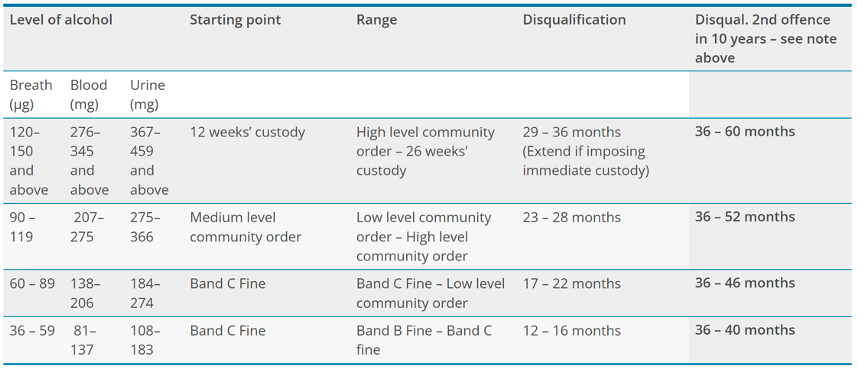Excess….As Night Follows Day
It's funny how things change as the years pass by. Perhaps only ten years ago, if we were thinking about particular spikes in alleged criminal offending over the Christmas period, the one that would jump out would always be drunk driving.
These days it is common to come across drug driving due to advances in technology and the ability to detect an increasing range of substances in the body.
It is well documented that if people believe the chances of detection to be low, the temptation to commit a crime is higher. Most people know that there is considerable pressure on police resources. Therefore even when we see a police car on the roads, it is most likely already being deployed to an active incident, not cruising the streets looking for errant drivers.
Ironically, the story here tends to be related to the morning after.
The main event is often an otherwise minor road traffic accident attracting the attention of a passing police officer, resulting in alcohol and drug testing and an arrest for those still affected by the excesses of the night before.
Drugs can be particularly problematic as their journey through the body is much less predictable than alcohol, putting those users at risk for extended periods.
Road traffic law remains one of the most complex areas of criminal law, so if you are being investigated for any drug or alcohol-related driving incident or have been charged or summonsed to appear before a court, it is very much in your interests to contact us at the first opportunity. These offences will invariably result in a driving disqualification if you are convicted. The stakes can be enormous, particularly if you rely on a driving licence as part of your employment.
We will explore all available offences and mitigation and ensure you receive the finest representation.
Drug Driving – Sentencing Guidance
As a guide, where an offence of driving or attempting to drive has been committed and there are no factors that increase seriousness the Court should consider a starting point of a Band C fine, and a disqualification in the region of 12–22 months.
Where there are factors that increase seriousness, the Court should consider increasing the sentence on the basis of the level of seriousness.
The community order threshold is likely to be crossed where there is evidence of one or more factors that increase seriousness. The Court should also consider imposing a disqualification in the region of 23–28 months.
The custody threshold is likely to be crossed where there is evidence of one or more factors that increase seriousness and one or more aggravating factors. The Court should also consider imposing a disqualification in the region of 29–36 months.
Drink Driving – Sentencing Guidance
The starting point applies to all offenders irrespective of plea or previous convictions.

How can we help?
We ensure we keep up to date with any changes in legislation and case law so that we are always best placed to advise you properly. If you would like to discuss any aspect of your case, please contact us on 0208 309 5010 or email newenquiries@nelson-guest.co.uk.
[Image credit: "Another Alcohol Shot" by brosner is licensed under CC BY 2.0.]
